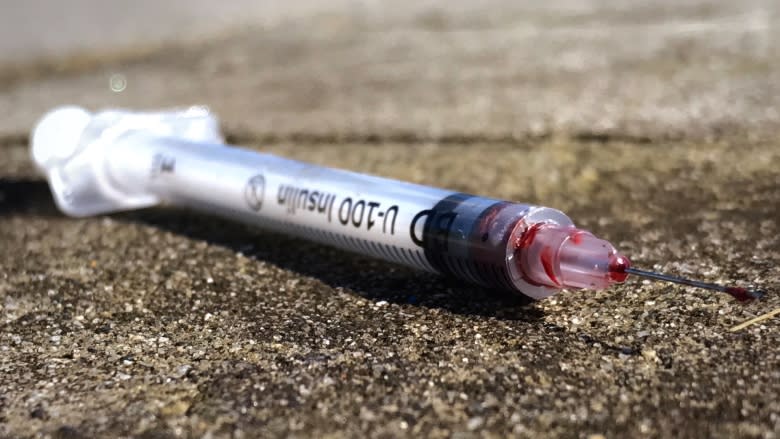Vancouver health authority wants to hear from drug users about 'bad dope'
It has been six weeks since Vancouver Coastal Health launched an online program for drug users to report overdose-causing drugs, but so far the system has seen very little use.
Real-time Drug Alert and Response (RADAR) is a pilot project that collects anonymous reports from drug users and others about overdose-causing drugs through texts, phone calls and an online submission form.
VCH then collects those reports, looks for trends and then sends out text-message alerts to people who have signed up to receive them. To date, only 84 people have signed up.
"The system is only as good as the people providing reports," said medical health officer Dr. Mark Lysyshyn.
"We've really had very few reports and we've only sent out one alert, on July 28, and really, that report wasn't the triangulation of multiple reports. It was just based on one report we received and it was basically to keep the network listening."
Lysyshyn hopes more awareness of the program will change that and more people at risk of overdose will sign up and share information.
'The idea behind the project is still sound'
RADAR collects information like where and when a toxic drug was purchased, what it looks like, the overdose symptoms and even how many doses of naloxone were required for revival.
Lysyshyn says there are similar systems to RADAR in Canada, but to his knowledge, this is the first based on text messaging.
He says the project took some time to launch and was originally developed before fentanyl was widespread in street drugs, but took some time to roll out.
"We were seeing spikes in toxicity that would ebb and flow," he said. "We're in a situation now where I think so many of the street drugs are toxic that maybe people don't think this system will really help them. [For example], if you were to avoid this purple powder and instead use this brown powder, it might also be contaminated."
Lysyshyn says new contaminants come up all the time though, and the system could help detect those. He also stresses that it is still early days for the program, which is undergoing an eight-month trial.
VCH says RADAR cost a total of $30,000 to implement, funded through a research grant.
Clean drugs the answer, says OD preventtion worker
Sarah Blythe is one person who has submitted a "bad dope" report to RADAR through her work with the Overdose Prevention Society.
She says it's a "very useful system" but awareness of it is low and overdose prevention workers are often too busy to spread the word.
She says while almost all street drugs — from heroin to cocaine to methamphetamine — now contain at least some fentanyl, but some batches contain more fentanyl than others.
"It can be extra potent. It comes in waves of really bad dope where people are overdosing at a rapid rate," she said.
"Bad dope can have pig dewormer in it. It can have all kinds of awful stuff in it."
Blythe says she and others plan to promote RADAR more in coming days, but believes the program is ultimately is a bandaid to the overdose crisis.
She still says giving users clean drugs is the best solution, as is done at the Crosstown Clinic.
"The reason we need to report bad dope is someone had a terrible overdose," she said. "We could get rid of that altogether, to a certain degree."



